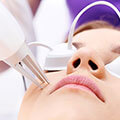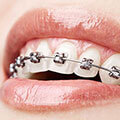A. THINGS YOU SHOULD KNOW
Certainly! Here are some important dental facts to increase awareness about oral health:
1. Oral health is connected to overall health
Poor oral health can contribute to various systemic conditions, including heart disease, diabetes, respiratory infections, and pregnancy complications. Maintaining good oral hygiene is essential for overall well-being.
2. Brushing alone is not enough:
While brushing is crucial, it only cleans about 60% of the tooth surfaces. Flossing or using interdental cleaners is necessary to clean between teeth and along the gum line, where toothbrush bristles can't reach effectively.
3. Dental X-rays are safe:
Dental X-rays use very low levels of radiation and are considered safe. They are valuable diagnostic tools that help identify tooth decay, gum disease, infections, and other oral health issues that may not be visible during a visual examination..
4. Dental health affects all ages:
Dental care is important at every stage of life, from infancy to old age. Proper oral hygiene, regular dental check-ups, and preventive measures help maintain oral health across the lifespan..
5. Mouthwash is not a substitute for brushing and flossing:
Mouthwash can provide temporary fresh breath and kill some bacteria, but it cannot replace the mechanical action of brushing and flossing. It is best used as an adjunct to regular oral hygiene practices.
6. Saliva is crucial for oral health:
Saliva helps protect teeth by neutralizing acids, remineralizing tooth enamel, and washing away food particles. Dry mouth (xerostomia) can increase the risk of tooth decay and other oral health problems.
7. Dental emergencies require prompt attention:
Dental emergencies require prompt attention: In case of a dental emergency, such as a knocked-out tooth, severe toothache, or injury to the mouth, it's important to seek immediate dental care. Quick action can often save a tooth or prevent further complications.
8. Your dentist is your oral health partner:
Regular dental check-ups are essential for maintaining oral health. Dentists not only diagnose and treat dental problems but also provide guidance on oral hygiene practices, preventive care, and address any concerns or questions you may have.
9. Diet plays a significant role in oral health:
Consuming a balanced diet rich in fruits, vegetables, whole grains, lean proteins, and low-fat dairy products promotes good oral health. Limiting sugary foods and beverages helps prevent tooth decay
10. Fluoride is beneficial for teeth:
Fluoride is a mineral that strengthens tooth enamel and helps prevent tooth decay. It can be obtained from fluoridated water, toothpaste, mouth rinses, and professional treatments. Your dentist can guide you on appropriate fluoride use for you and your family.
Remember, these facts serve as general guidelines, and it's always best to consult with a dental professional for personalized advice and recommendations based on your specific oral health needs.
B. Effects of poor oral hygiene on body.
Poor oral hygiene can have several significant effects on the body beyond just dental problems. Here are some of the potential consequences:
1. Gum Disease
Neglecting oral hygiene, such as inadequate brushing and flossing, can lead to gum disease. This condition, also known as periodontal disease, occurs when bacteria in the mouth form plaque and tartar, leading to inflammation and infection of the gums. If left untreated, gum disease can progress and cause gum recession, tooth loss, and even bone damage.
2. Tooth Decay:
Insufficient oral hygiene practices, including infrequent brushing and improper flossing, can result in tooth decay (cavities). Bacteria in the mouth break down sugars and starches from food, producing acids that erode the tooth enamel. Over time, this can lead to the formation of cavities, causing pain, tooth sensitivity, and potential tooth loss.
3. Bad Breath:
Poor oral hygiene can contribute to persistent bad breath, also known as halitosis. Bacteria in the mouth release foul-smelling compounds as they break down food particles and plaque. Neglecting regular brushing, flossing, and tongue cleaning allows bacteria to thrive, leading to unpleasant breath odor.
4. Cardiovascular Disease:
There is a growing body of evidence suggesting a link between poor oral health and an increased risk of cardiovascular disease. Some studies have found that the bacteria involved in gum disease can enter the bloodstream, triggering inflammation and potentially contributing to the development of heart disease, clogged arteries, and an increased risk of heart attacks and strokes.
5. Respiratory Infections:
Neglected oral hygiene can also impact respiratory health. The bacteria present in the mouth can be inhaled into the lungs, potentially leading to respiratory infections such as pneumonia, bronchitis, and exacerbations of chronic obstructive pulmonary disease (COPD).
6. Diabetes Complications:
Poor oral hygiene may have an impact on diabetes management and complications. Diabetes can weaken the body's ability to fight off infections, and gum disease can make it more challenging to control blood sugar levels. Additionally, individuals with diabetes are more prone to gum disease, and poor oral health can exacerbate the condition, creating a bidirectional relationship.
7. Pregnancy Complications:
Pregnant individuals with poor oral hygiene may face an increased risk of certain pregnancy complications. Gum disease has been associated with premature birth, low birth weight, and preeclampsia. Maintaining good oral health is especially important during pregnancy to minimize these risks





